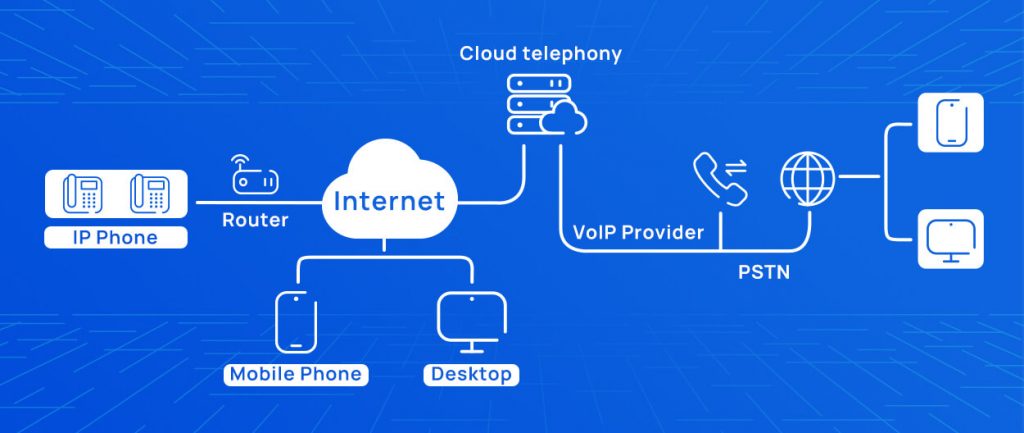
Cloud telephony is revolutionary in the way businesses communicate with their customers. It allows companies to manage their phone systems in the cloud, removing the need for expensive hardware and maintenance. Businesses can use this technology to streamline communication processes and improve customer experience. In this article, we will look at the advantages of cloud telephony and how it can benefit businesses of all sizes.
Features
1. Scalability is a crucial advantage of cloud telephony. It enables businesses to quickly scale up or down their phone systems based on changing needs, with no additional hardware or infrastructure investment, allowing them to respond rapidly to changing business environments.
2. Businesses that use cloud-based phone systems save money on hardware and maintenance. Furthermore, its providers typically offer flexible pricing plans, allowing businesses to pay only for their requirements.
3. It can also assist businesses in improving their (CRM) customer relationship management. IVR (interactive voice response) and call routing can help customers quickly connect with the right person, reducing wait times and frustration.
4. Besides increasing productivity, it allows workers to work from anywhere. Cloud-based phone systems enable employees to place and receive conversations from their laptops or mobile devices, facilitating remote working.
5. Additionally, it provides cutting-edge features to boost business productivity. For instance, Cloud PBX (Private Branch Exchange), a virtual phone system hosted in the cloud, allows businesses to manage their phone system entirely in the cloud, eliminating the need for physical hardware or infrastructure. Therefore, this type of phone system is scalable and flexible, allowing businesses to add or remove phone lines and features as needed.

Advantages
- Its solutions prioritize security for businesses.
- Providers use encryption to protect calls and data during transmission.
- Multi-factor authentication and access controls are used to prevent unauthorized access.
- Its solutions can be configured to meet industry-specific regulations, such as HIPAA for healthcare providers.
- Robust security measures in place with this technology provide peace of mind for businesses.
Conclusion
Finally, cloud telephony is a powerful technology that can assist businesses of all sizes to streamline their communication processes, saving money and improving their customer experience. Further, businesses can stay competitive in today’s fast-paced business environment by leveraging cloud telephony’s scalability, cost savings, and advanced features.